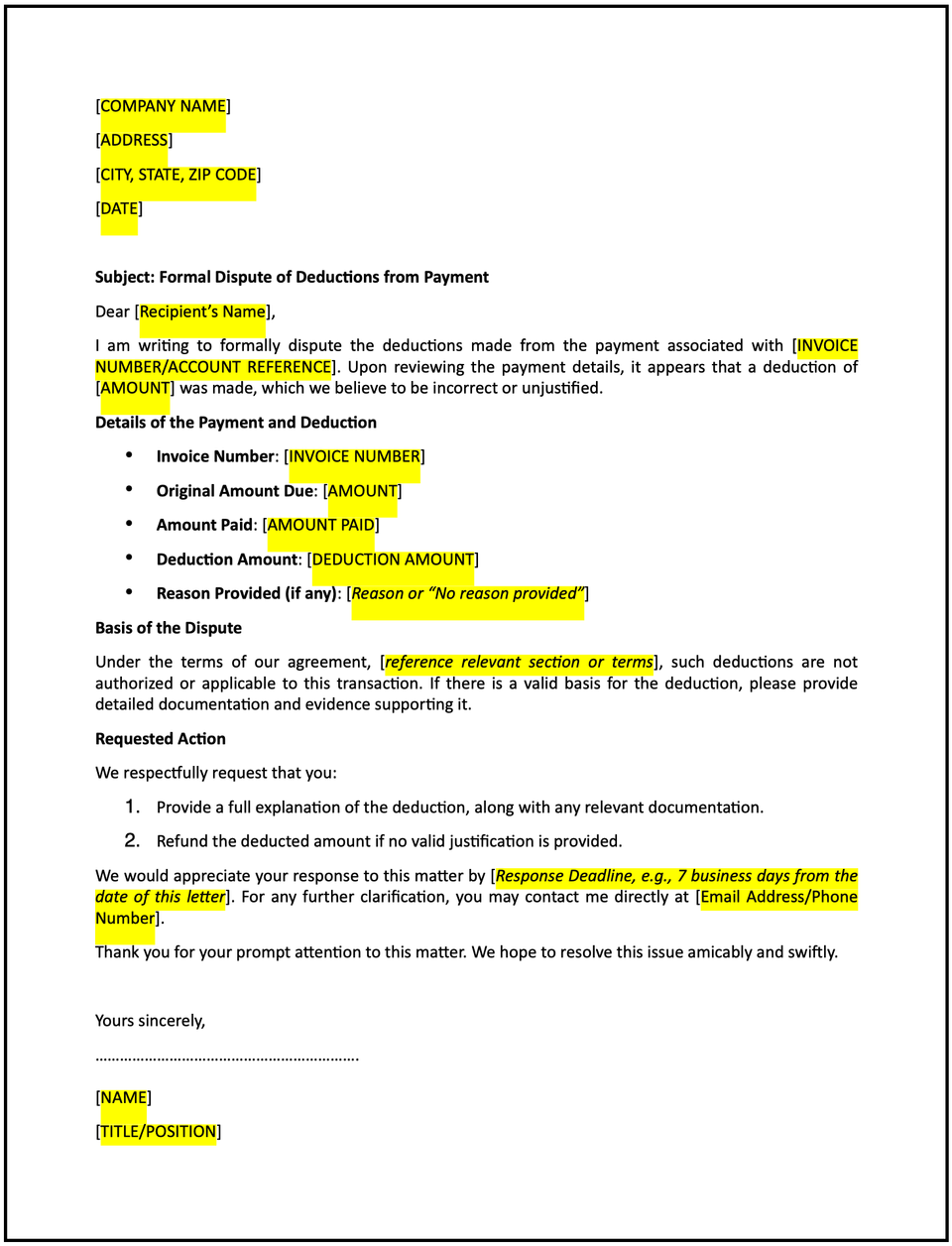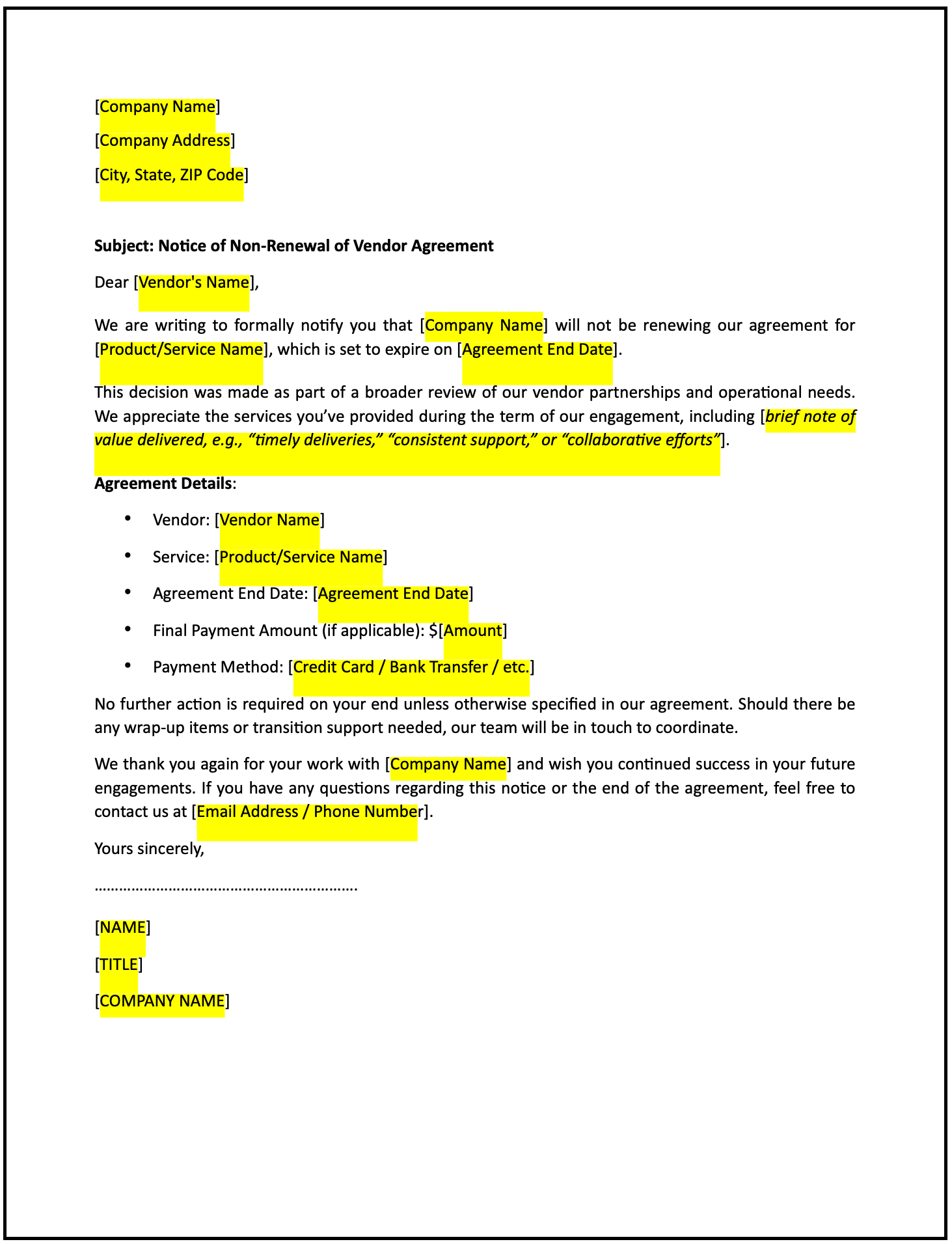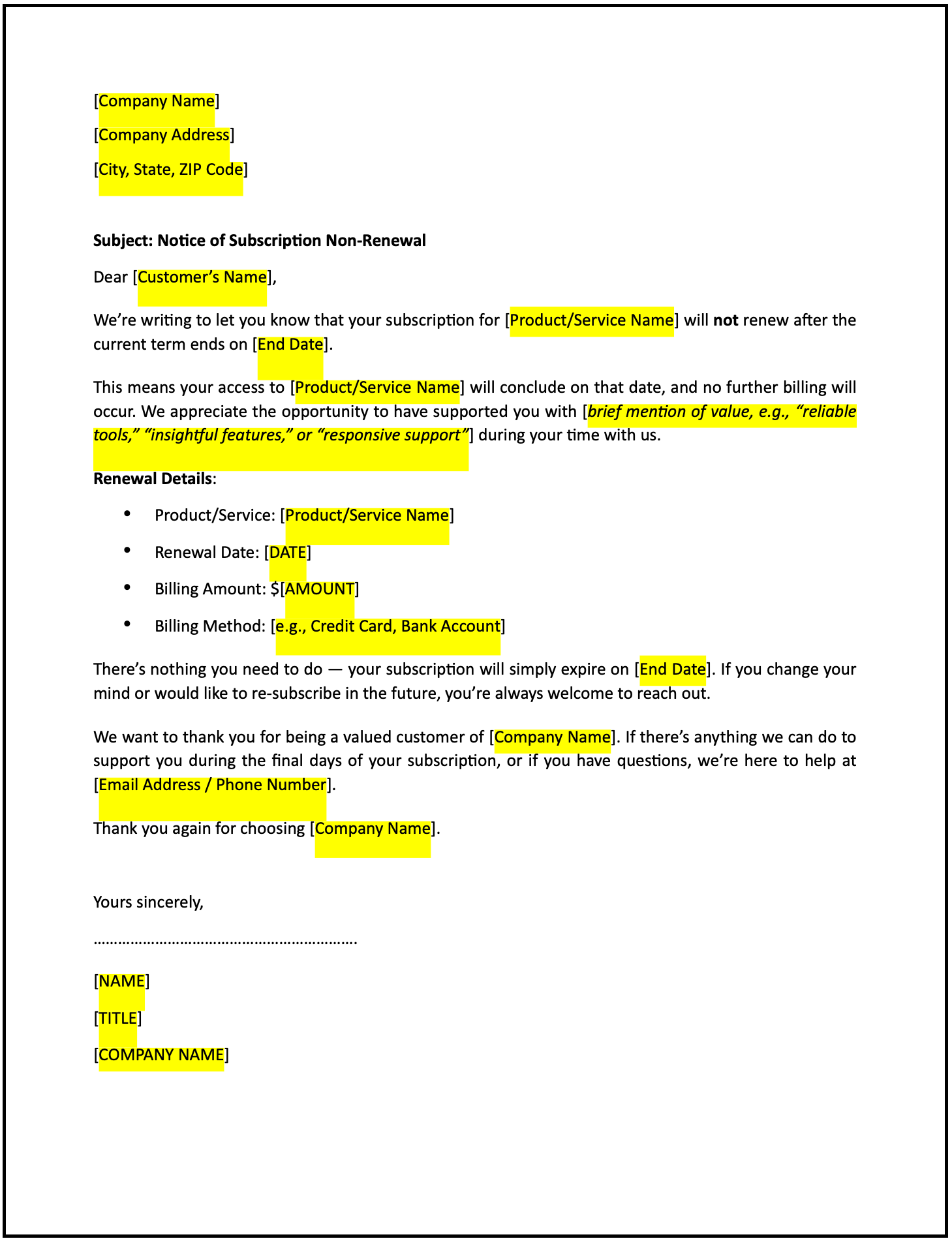Letter disputing deductions from a payment: Free template

Letter disputing deductions from a payment
A letter disputing deductions from a payment is a formal way to raise concerns about unauthorized or incorrect deductions made from an agreed payment. This letter outlines the discrepancy, provides supporting evidence, and requests a resolution, fostering clarity and fairness in financial dealings.
How to use this letter disputing deductions from a payment
- Open with the purpose: Begin by clearly stating that the letter is to dispute specific deductions from a payment.
- Provide transaction details: Include information such as the payment date, amount, and reference or invoice number to identify the transaction in question.
- Specify the disputed deductions: Clearly outline the deductions being disputed, including the amounts and reasons provided for the deductions.
- State the issue: Explain why the deductions are being disputed, referencing agreements, contracts, or policies as needed.
- Request resolution: Politely request a review of the deductions and a correction if the dispute is found valid.
- Offer supporting evidence: Mention any attached documents, such as contracts, invoices, or correspondence, that support your claim.
- Maintain a professional tone: Ensure the letter is clear, respectful, and solution-focused.
- Provide contact information: Include details for follow-up discussions or resolution of the matter.
Benefits of using a letter disputing deductions from a payment
This letter template ensures a structured and professional way to raise concerns about deductions while fostering clarity and fairness. Here’s how it helps:
- Promotes transparency: Clearly outlining the issue minimizes misunderstandings and facilitates resolution.
- Reflects professionalism: A well-crafted letter demonstrates respect and a commitment to fair dealings.
- Encourages accountability: Raising the issue ensures all parties adhere to agreed terms and conditions.
- Supports dispute resolution: Providing evidence and clear communication fosters constructive dialogue.
- Provides documentation: A formal record of the dispute supports financial tracking and compliance.
Tips for writing an effective letter disputing deductions from a payment
- Be specific: Clearly describe the deductions being disputed and the reasons for the dispute.
- Use professional language: Maintain a respectful and solution-focused tone to encourage cooperation.
- Highlight evidence: Mention any supporting documents or agreements that validate your claim.
- Include actionable advice: Request specific next steps, such as a review or correction of the deduction.
- Keep it concise: Focus on the key points while ensuring the tone is professional and constructive.
Frequently asked questions (FAQs)
Q: What details should I include in this letter?
A: Include the payment details, disputed deductions, reasons for the dispute, and any supporting evidence.
Q: Should I personalize the letter?
A: Yes, addressing the recipient directly ensures clarity and demonstrates attentiveness.
Q: Who typically sends this letter?
A: The sender of the payment or their legal or financial representative usually sends this letter.
Q: How formal should this letter be?
A: The tone should be professional and respectful, focusing on clarity and resolution.
Q: When should this letter be sent?
A: Send the letter promptly after identifying the disputed deductions to ensure timely resolution.
Q: Can this letter request a specific resolution?
A: Yes, suggesting specific remedies, such as a refund or explanation, can help clarify your expectations.
Q: Is acknowledgment from the recipient required?
A: While not mandatory, requesting acknowledgment ensures the recipient is aware of the dispute and next steps.
This article contains general legal information and does not contain legal advice. Cobrief is not a law firm or a substitute for an attorney or law firm. The law is complex and changes often. For legal advice, please ask a lawyer.


